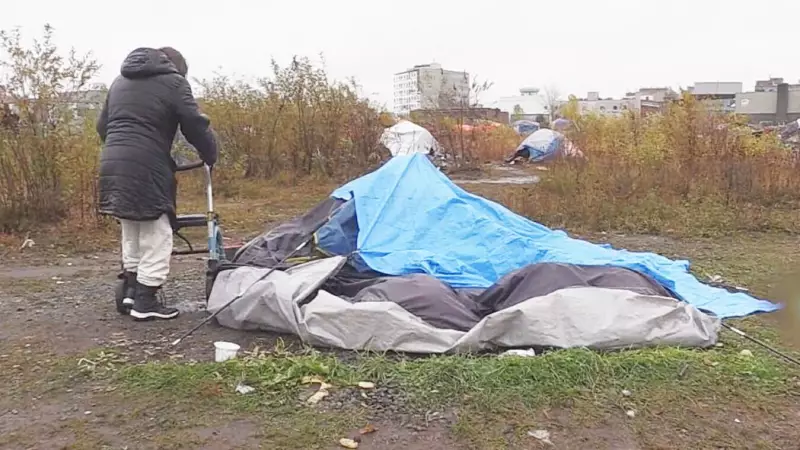
In the heart of Northern Ontario, a devastating personal crisis unfolds as a disabled Sudbury woman battles for survival while homeless, confined to a broken tent that offers little protection against the region's unforgiving elements.
Michelle Seguin's story reveals the harsh reality of Ontario's housing emergency, where vulnerable citizens with disabilities are falling through the cracks of an overwhelmed social safety net. The 43-year-old woman, who relies on disability support, has been forced to call a damaged tent her home despite her physical limitations and medical needs.
A Daily Struggle for Basic Survival
Living in her compromised shelter, Seguin faces constant challenges that would test even the healthiest individuals. Her tent, torn and inadequate against rain and cold, represents the broader breakdown of support systems meant to protect society's most vulnerable.
"I'm just trying to survive day by day," Seguin explains, her voice reflecting the exhaustion of someone fighting impossible odds. "When it rains, everything gets wet. When it's cold, I can't get warm. This is no way for anyone to live, especially someone with disabilities."
The Systemic Failures Behind the Crisis
The situation highlights critical failures in multiple systems designed to prevent exactly this kind of suffering. Despite reaching out to various social services and support organizations, Seguin finds herself trapped in a cycle of inadequate solutions and bureaucratic dead ends.
Northern Ontario's limited shelter capacity and affordable housing shortage have created a perfect storm where individuals with disabilities increasingly find themselves without viable housing options. The problem becomes particularly acute during seasonal transitions when weather conditions turn dangerous for those living outdoors.
The Human Cost of Inadequate Support
Seguin's physical health continues to deteriorate without proper shelter, medical care, or consistent access to nutritious food. Her mobility issues make simple tasks like finding drinking water or safe bathroom facilities daily ordeals that would challenge anyone's resilience.
The psychological toll is equally devastating. The constant stress of survival mode, combined with the demoralizing reality of being overlooked by systems meant to protect her, creates a burden that few could bear indefinitely.
A Call for Community Action and Policy Reform
Seguin's plight serves as a urgent wake-up call for both community response and policy reform. Local advocates point to her situation as evidence that current approaches to homelessness and disability support require immediate reassessment and strengthening.
"When someone with disabilities is left to survive in a broken tent, we've failed as a society," says a local homeless advocate who asked to remain anonymous. "This isn't just about one person - it's about fixing systems that are supposed to prevent this exact scenario."
As Seguin continues her daily battle for basic dignity and survival, her story raises pressing questions about how Ontario treats its most vulnerable citizens and what concrete steps must be taken to ensure no one else endures similar circumstances.






